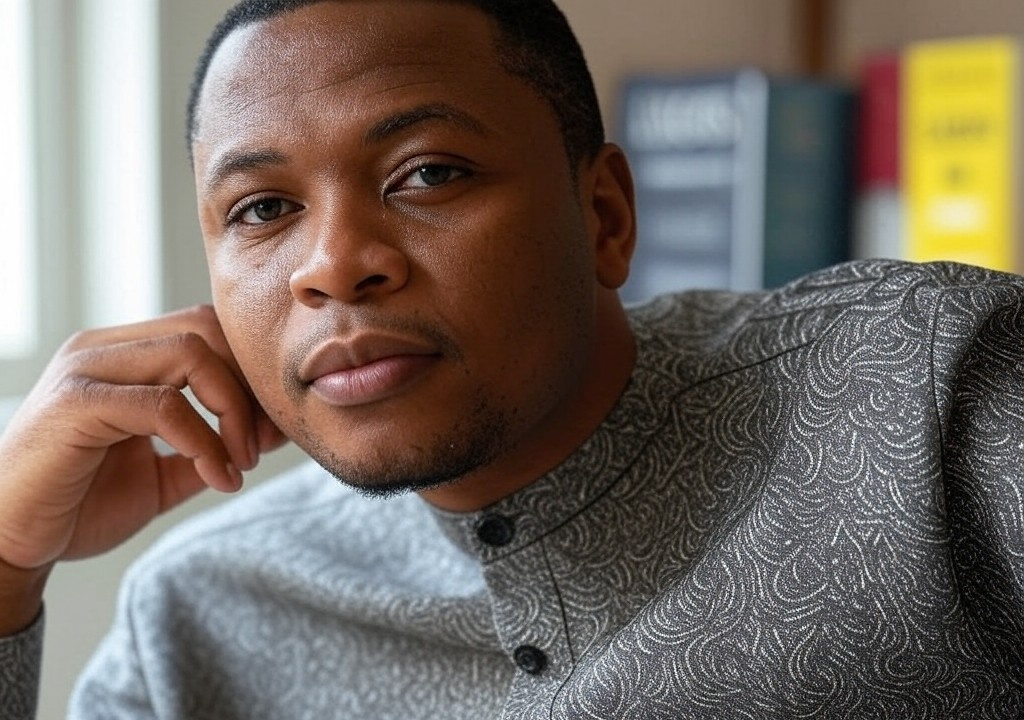What’s in a name? Five little letters, a bundle of consonants and vowels strung together to form the most personal part of who you are. It’s the sound you turn your head to in a crowded room. The thing people mispronounce at Starbucks that has you quietly deciding is this the battle you’ll fight today, or nah? It’s the opening line of your resume, your Instagram bio, and, for many of us, the one thread tying together all versions of ourselves—from cluelessly crawling toddlers to (hopefully) slightly-less-clueless adults.
For me, that bundle of five letters is Malik. Emphasis on the first syllable: MAH-like, not muh-LEAK. Getting that right is key to understanding me. But we’ll get there. This is my love letter to my name: where it comes from, what it’s had to endure, and how it shapes who I continue to become.
Lagos to Brooklyn: Carrying the Weight of Meaning
Malik comes from Arabic origins, meaning "king" or "sovereign." Heavy is the name that wears the crown, am I right? I wore it in Lagos, a little boy zipping through bustling streets where open-air markets put on daily performances of haggling and banter. There, Malik seamlessly blended in. No one second-guessed it when they called out my name; no syllable dragged or fell into awkward phonetic oblivion.
Fast forward to my Brooklyn chapter. Eight years old, stepping into a classroom where my name became both a puzzle and a test. “Mail-ick? Mall-ick? Muh-leak?” my teachers tried, each attempt further stripping away the silky familiarity of my name. My ten-year-old self sat there silently recalibrating each time, reducing my name to an easier, friendlier sound to avoid looking like the kid—yes, we all know that kid—who corrected every substitution and butcher-job directed his way.
There’s this quiet accommodation that immigrant kids make: your name morphs to fit the world around you, instead of the other way round. But on the schoolyard—oh, the great equalizer—it was exactly five letters long, chewable and neat. "Malik" made it onto kickball teams and into lunchroom roasts effortlessly. It helped that I carried myself like I belonged there, crown slightly tilted and all. Names don’t just sit on us—they shape us, create the person we end up setting loose in the world. Mine made me adapt. Quick to catch a joke. Even quicker to deliver one before someone found a reason to slice my seat at the cool-kids’ table in half.
Romantic Misnomers: When Names Meet Love
Here’s where this gets interesting—dating with a name like Malik is its own adventure. If you’ve ever dated someone whose name had a unique spelling or an unfamiliar pronunciation, you probably know there’s a shift in energy that happens right at hello. “Wait, how do I say it?” she might ask, head cocked to the side during that first flirty, pre-date FaceTime call.
We Malik-types (insert any name that’s rich in culture and history but subject to linguistic gymnastics everywhere else) have a built-in radar for when someone gets it wrong but really cares enough to try to get it right. There’s something magnetic about someone asking for the 3.5th time, “Wait, say it again. I want to get it exactly right.” Suddenly, my name stops feeling like a burden and starts feeling like a litmus test for emotional effort. Public Service Announcement: People, take the time—it matters.
But then there were the moments when my name became performance art. An ex of mine insisted on saying “Malik” in the deepest voice possible every time she said it, as if narrating some Game of Thrones episode about power and conquest. It started as a cute, charming quirk but quickly devolved into what felt like me participating in an unplanned open-mic night. A lesson for the ages: names are intimate. Treat them as sacred ground because that’s what they are.
Owning the Crown: Where Identity and Self-Worth Collide
By the time I moved upstate for grad school, Malik was a name I wore confidently. Too confidently some might argue, judging by professors who’d side-eye me during roll call when I interrupted their five-minute vowel massacre with a polite, “It’s pronounced MAH-like.” At that point, “owning it” meant banishing the cultural tug-of-war between assimilation and honoring my roots.
I realized it wasn’t just a name—it was branding, especially in the tiny, competitive MFA bubble of budding novelists and poets upstate. Malik meant originality, a voice rising above monotony. Malik made introductions in coffee-spilling-over-pages workshop spaces sound intriguing enough to remember: “Wait, where’d you say you’re from? And, wow, is that a Nigerian name? Tell me about that.” Suddenly, I wasn’t just explaining my name; I was explaining me.
Five Tips for Loving Your Name (Even When the World Struggles to Say It)
Trying to navigate a world where your name doesn’t neatly roll off most tongues can feel overwhelming—whether at work, at a bar, or nervously meeting the parents for the first time. Here’s what I’ve learned:
-
Decide How You Want to Be Introduced. Own the pronunciation and feel free to add your signature humor. I sometimes say, “It’s Malik, like a mellow king chilling on a throne. Easy, right?” Watch the lightbulb click.
-
Explain the Meaning (if comfortable). People tend to attach greater value to names when they understand their meaning or history. “It’s Arabic for ‘king!’ Better put some respect on it,” has gotten more than a few sincere chuckles.
-
Set Boundaries Without Guilt. It’s okay to gently correct folks—two tries, maybe three, tops. Beyond that? Well, as someone wise (probably Beyoncé) said, “I’m not fighting battles that don’t pay me in peace.”
-
Lean Into Humor. Like me, you may find yourself becoming a name-podcast host, narrating your syllables on loop until someone gets it. Laugh about it if you can—it diffuses tension and keeps spirits high.
-
Reclaim the Love. When the world fumbles, it can feel like your name is a flaw, a weight too heavy to carry. Flip the narrative. Your name is cultural poetry; it’s an offering to the world. Say it often, say it loudly—and whoever can’t vibe with that might not deserve a seat at your table.
A Name, a Lifelong Conversation
And so, my name remains one of the truest parts of me. It’s the link to my past, the crown I wore when my family arrived in America with hopes brighter than the neon skyline that first night. It’s my anchor—when the world feels chaotic, Malik grounds me with its unbudging, five-letter simplicity.
But most importantly, it’s the invitation I extend to every connection I make in this messy, unpredictable, and beautiful thing called life. Holding out a hand, smiling slyly, and saying, “Hey—I’m Malik. Nice to meet you. Oh, and yeah, it’s MAH-like.”
From one name to another, whatever yours may be—wear it well.




















